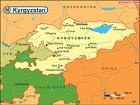Friday
Apr162010
US "National Security": Obama to Break Link Between Islam and Terrorism?
 Friday, April 16, 2010 at 13:33
Friday, April 16, 2010 at 13:33  Darrell Ezell writes for EA:
Darrell Ezell writes for EA:Preparations are under way by key National Security Council officials, reshaping the US National Security Strategy, to break the Bush-era linkage of Islam to terrorism. While this symbolic move is essential to restoring relations with the Muslim world, it promises to unleash a firestorm among conservatives in Washington.
According to sources, Pradeep Ramamurthy, head of the White House Global Engagement Directorate (a four-person NSC team), and his deputy Jenny Urizar are making progress in their rewrite of US national security documents set for release before the President’s trip to Indonesia in early June. They are focusing on the dynamic of language and how a respectful tone in communication, avoiding loaded religious rhetoric, may aid in restoring US–Muslim relations in the world.
It is no secret that the language in the Bush period linking the religion of Islam to terror contributed to ideological tension between the US and Muslims after 9/11. Statements by President Bush such as “This crusade, this war on terrorism is gonna take awhile…” or academic arguments presented by Bernard Lewis and Samuel P. Huntington that America is facing a “clash of civilizations” contributed to a misinterpretation of the religion of Islam and Islamic society by U.S. officials. This narrow misreading provided the intellectual framework and vocabulary for the 2006 U.S. National Security Strategy (NSS), which asserted, "The struggle against militant Islamic radicalism is the great ideological conflict of the early years of the 21st century and finds the great powers all on the same side – opposing the terrorists."
The 2006 NSS accomplished, on the surface, two specific goals: 1) It identified in clear terms America’s “new” enemy (“Islamic radicalism”, terrorists, and rogue states) against whom the US planned to defend itself at all necessary cost militarily; and 2) It set out a course of action for rebuilding key nations in an effort to promote effective democracies within countries identified as failed states.
To assure the Obama administration does not fall into the ideological traps set up by this approach, Ramamurthy’s office will pursue a set of 2008 recommendations outlined by the Counter-Terrorism Communications Center ("Words that Work and Words that Don’t") and the Department of Homeland Security ("Terminology to Define the Terrorists").
Acknowledging the damage caused by the Bush administration’s choice of language, the January 2008 DHS report made the recommendation that the U.S. government consider more strategic terminology.
The terminology that senior government officials use must accurately identify the nature of the challenges that face our generation....At the same time, the terminology should also be strategic – it should avoid helping the terrorists by inflating the religious bases and glamorous appeal of their ideology…If senior government officials carefully select strategic terminology, the government’s public statements will encourage vigilance without unintentionally undermining security objectives.
That is, the terminology we use must be accurate with respect to the very real threat we face. At the same time, our terminology must be properly calibrated to diminish the recruitment efforts of extremists who argue that the West is at war with Islam.
The shift in national security language indicates the Obama Administration is comprehending the dynamic of communication as a tool to improve or further deteriorate future relations with Muslims. Iraqi government spokesman Ali al-Dabbagh declares, “It’s a good message of assurance, and differs from the former American administration’s position on this matter which showed no real understanding of Islamic countries….This decision by Obama will help to reform the image Muslims have of America.”
The conservative backlash has already begun with FOX News featuring the assertion of Senator Joseph Lieberman (as a former Democratic Vice Presidential candidate, a key ally for Obama's opposition) calling the shift in national security language “dishonest, wrong-headed, and disrespectful”. Arguing against the White House’s use of more strategic language, Lieberman insists:
It's a group of Islamist extremists who have taken the Muslim religion and made it into a political ideology, and I think if we're not clear about that, we disrespect the overwhelming majority of Muslims who are not extremists.
Senator Lieberman’s position points to the danger of a continued marriage of the terms Islam and radicalism in US national security documents. Underneath the surface, he, like most conservative writers, seeks to keep the current war on terror framed in religious/ideological terms. That position may make it easier for scholars to follow the narrow-minded resolution of Lewis and Huntington through the call for the religion of Islam to "reform", assuring its compatibility with the West. However, the use of the loaded terms sustained the ideological context of a global debate dominated by the tension between US foreign policy and groups like Al Qa'eda and the Taliban.
By dropping the unhelpful vocabulary, the White House sends the message that it is willing to discern the value of promoting a language of understanding over the theme of "combat". It is essential that the Administration make this linguistic shift, not just to apply political correctness to U.S. foreign policy, but to implement a more engaged framework of communcation before the President's summer address to the Muslim world in Indonesia.




